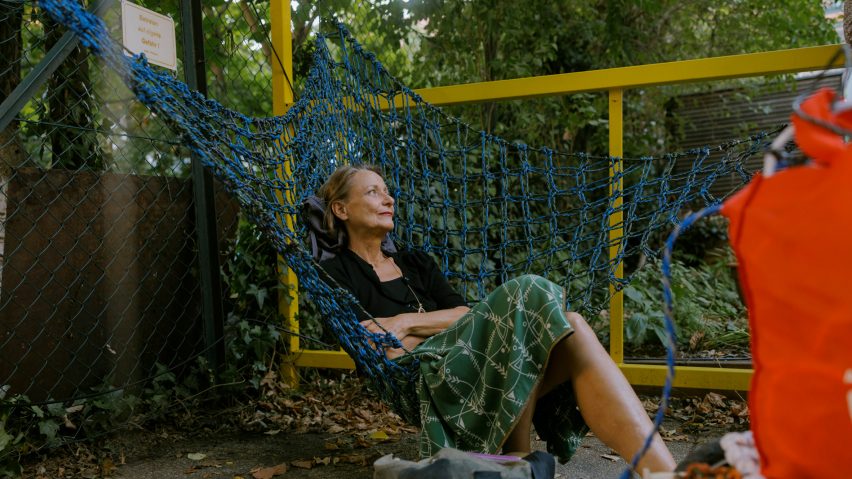
Membran recruits pedestrians to turn waste tarps into public seating for Vienna
A group of students from the University of Applied Arts has won Vienna Design Week's Social Design Award with a project aimed at involving citizens in the design of their urban spaces using the city's own waste materials.
As part of the Urban Networks project, the Membran collective rescued discarded tarps from construction sites across Vienna and built a machine that turns strips of the waste material into sturdy ropes.
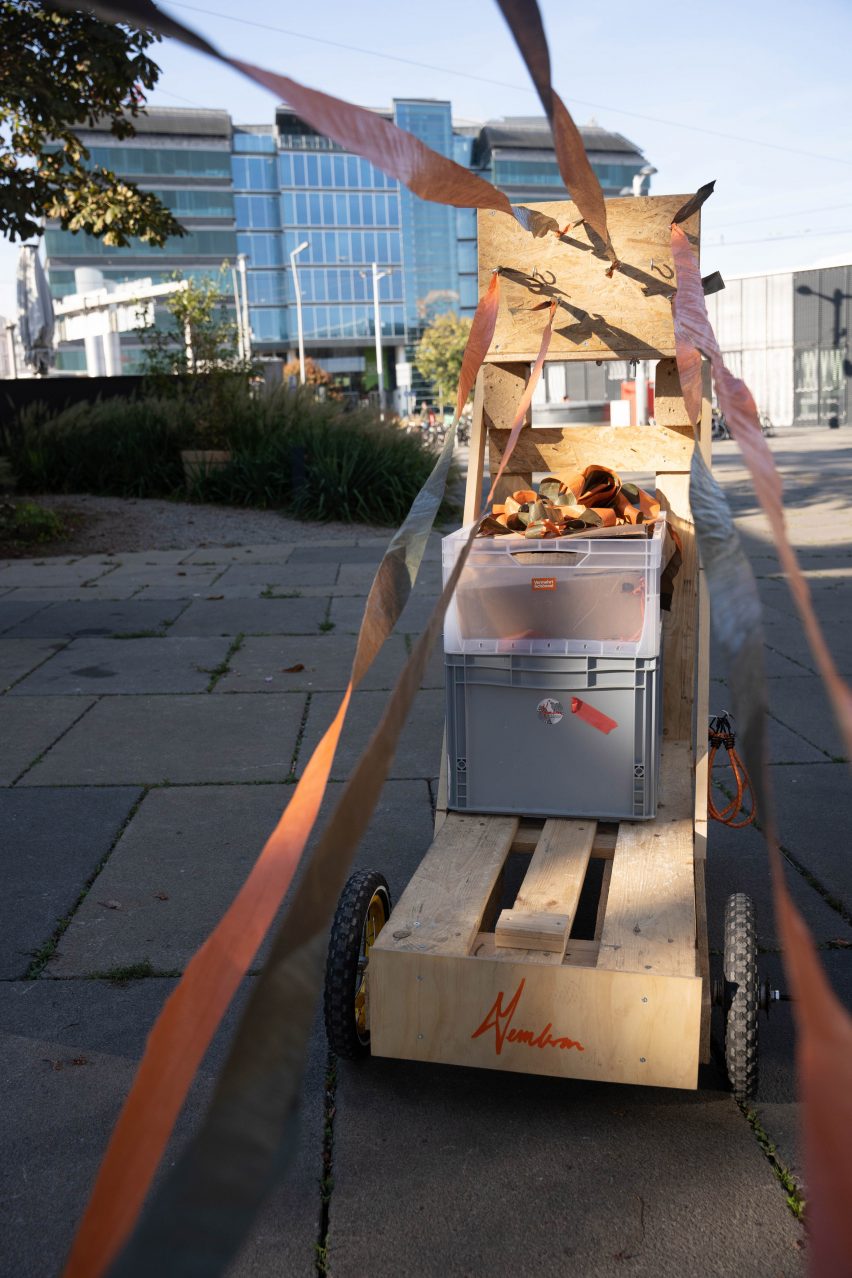
For the duration of the festival, this was set up on the Praterstern – one of the city's busiest interchanges passed by 150,000 people every day – to involve passersby in making the ropes and knitting them together to create temporary seating for the square.
The resulting street furniture creates a new space for community engagement and interaction, without having to bring in new virgin materials.
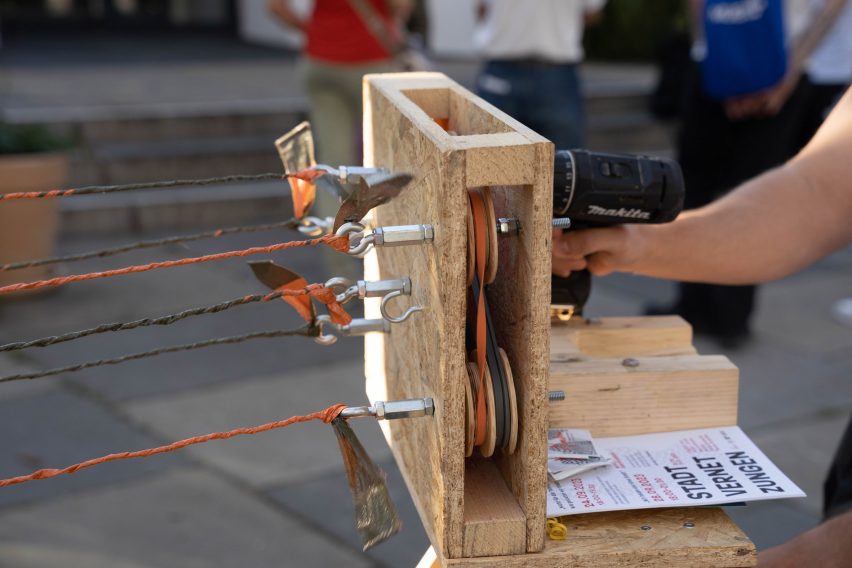
"Two-thirds of all waste in Austria comes from construction sites, so it's a big waste stream," said Frida Teller, who founded Membran together with Julia Hahnl, Tobi Kauer and Julia Habarda.
"So we were thinking about how we can actually use the materials that are thrown away to reconstruct the city in a more democratic way, designed by the people who pass by."
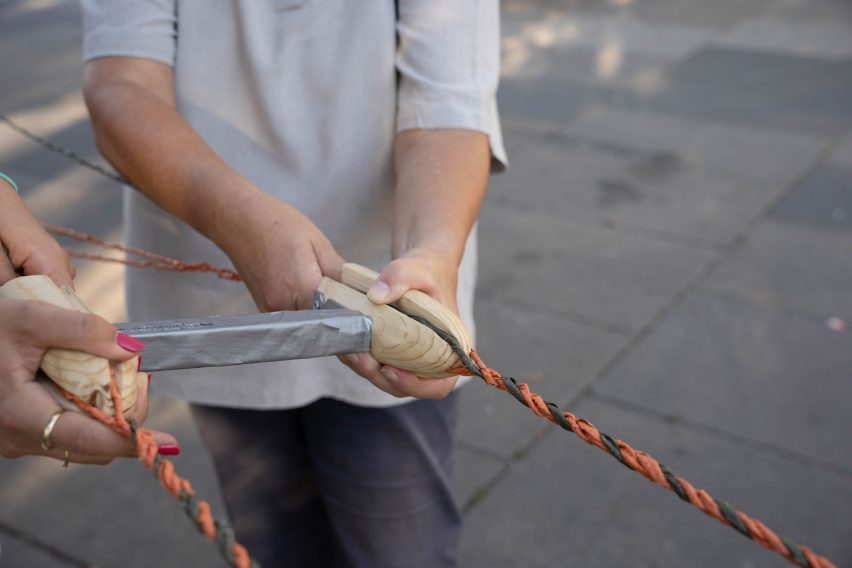
To create the DIY rope-making machine, Membran took apart old wooden pallets and used them to form two carts, between which the strips of tarp can be stretched by attaching them to long eye bolts on either side.
A battery-powered drill is used to spin these bolts into place, effectively twisting the tarps into long cords, six at a time. Three of these cords are then spun together to create one sturdy rope, using the same technique helped by a guide wood.
The whole process takes around 10 to 15 minutes and was designed to allow easy participation and transport so the machine can be set up in different public places.
Curious pedestrians were recruited to both create the ropes and turn them into large nets using a macramé knotting technique, bringing different people together to create each hammock seat.
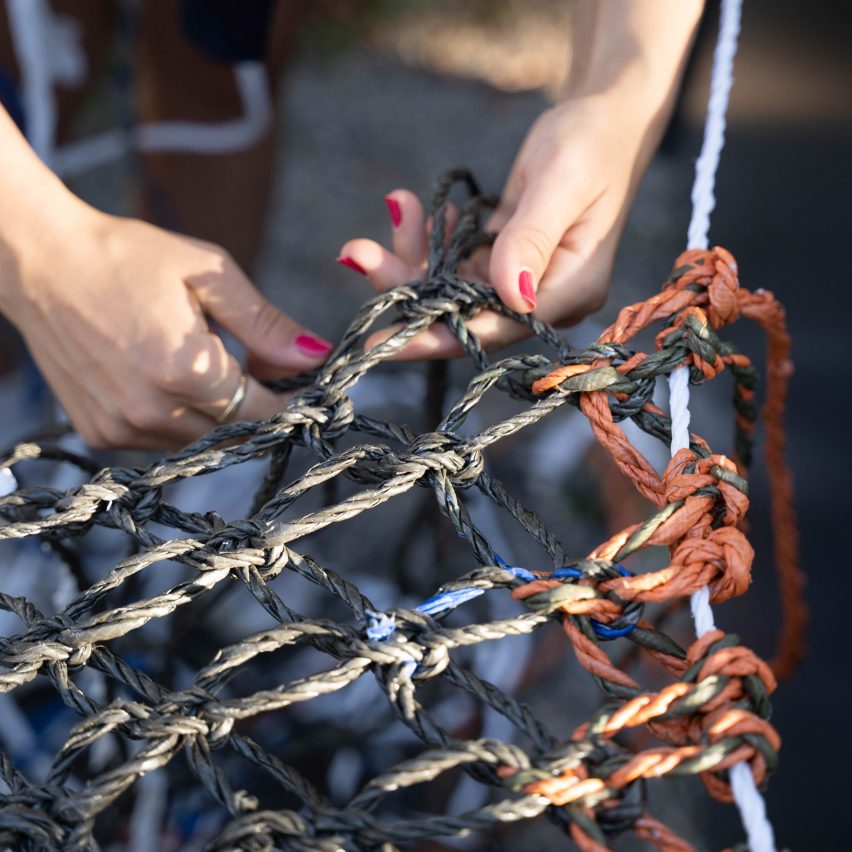
"We're here every day for three hours and lots of people come and join," Teller told Dezeen. "A few minutes ago, a guy who was here three days ago came and he brought his friend so they could try it together."
"Some stay for two or three hours because they really like the process," she added. "We also have some connections with the bus drivers. This is their final stop so they always stop by and invite us for coffee."

The project is part of Vienna Design Week's ongoing Stadtarbeit initiative, which every year for the last ten years has supported projects focused on involving everyday citizens in the design process.
Also on show at the festival headquarters, Urban Networks was one of three projects realised as part of the VDW's 2023 edition and was crowned the winner of the annual Social Design Prize sponsored by Erste Bank.
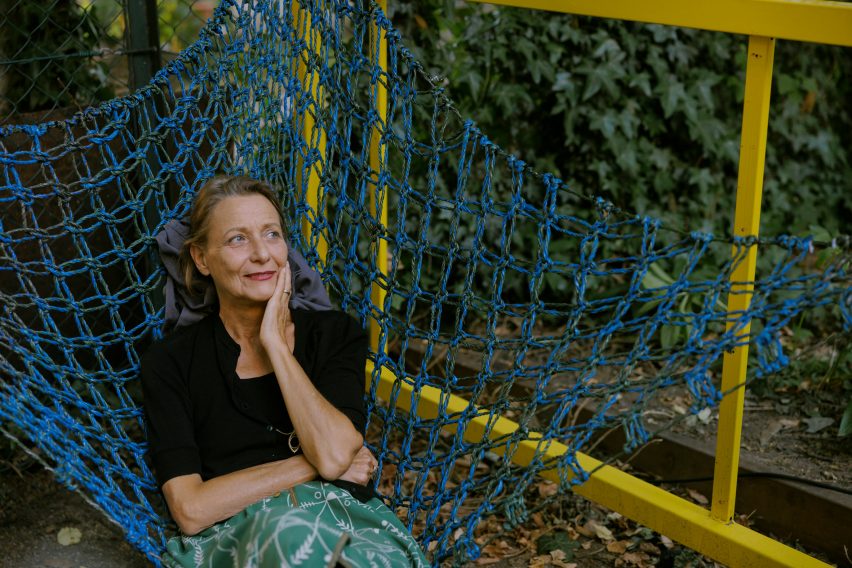
Now that Vienna Design Week has drawn to a close, Membran is planning to donate the seats to community gardens and bring the project to different public spaces.
"Ideally, we would do more projects like this in different places with different people," Teller said. "But it can be difficult to get the city's approval because public space is so regulated."
Elsewhere at Vienna Design Week, The Series exhibition collated work by 22 independent designers to explore the idiosyncrasies of small-batch production.
Previous editions of the festival have featured tableware made from food waste and a touch-responsive clock that tells the time with shadows.
The photography is Marcella Ruiz Cruz and Tobias Kauer.
Urban Networks was on display as part of Vienna Design Week 2023 from 22 September to 1 October. See Dezeen Events Guide for all the latest information you need to know to attend the event, as well as a list of other architecture and design events taking place around the world.